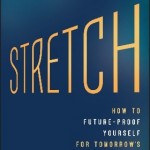 When it means taking on more experiences.
When it means taking on more experiences.
Experiences are the ways in which we obtain knowledge and skills. That’s why anyone searching for a first job understands the conundrum that “You can’t get a job without experience, and you can’t get experience without a job.” When you have the opportunity to see or feel something, it has an effect on you that goes beyond what you can learn through observation.
Whether you are launching your career, considering a career shift, or simply wanting to stay relevant where you are, it’s important to have a plan to manage and acquire a variety of experiences. Being able to answer the question: “What kind of experiences have prepared you for this role?” with practical and tangible examples can provide you with surprising leverage and desirability. That’s why we advise you to be greedy about experiences.
The word “greedy” is almost never used in a positive context. However, when it comes to experiences, the best way to future-proof yourself is to be voracious in seeking out as many opportunities as you can. Experiences are the most effective way to learn new skills, reinforce what you know, and help you build on your strengths. People who have developed a repertoire of skills throughout their career know that this is a gradual and continuous process. It takes practice and repetition. People who are developmentally engaged look for new chances to stretch and capitalize on experiences, even when they don’t seem particularly relevant to their current role.
While repetition aids in building expertise, when it comes to experience, you will want to seek out diversity to stretch to the next level. You must acquire new experiences, and not just repeat the same ones over and over again. A third benefit is that they are a great way to help you expand your skillset, especially when the experiences are a bit outside your comfort zone.
No Two People Are the Same
Two people, given the same experiences, might not each gain the same growth of knowledge and capability. You must get the right experiences for you. We construct a narrative of who we are based on our experience. Therefore, the more experiences you can gain, the more options you’ll have to expand your own personal narrative.
Obviously, you should think about how to get more experiences in the job that you are in, but why not expand your thinking to pursue other developmental experiences? The more varied you can make your experiences, the greater the likelihood of developing a broad set of skills. Stepping outside your comfort zone into new situations that call for untested abilities is a great way to boost your confidence and discover new capabilities. How often do you put yourself in the unknown or the uncomfortable? If you don’t feel in over your head at least three to four times a year, you are not aiming high enough. You are not stretching.
Boost Your Skill Set
If you are always one of the first to volunteer for new assignments, your enthusiasm will guarantee that you have no shortage of work. If that’s the case, then it’s important to be strategic and deliberate in setting goals for what experiences to go after. Instead of focusing on fixing weaknesses, try focusing on your strengths as a way to build mastery. By becoming the go-to person for certain expertises in your organization, you will distinguish yourself–not just on your team, but to others as well. And when you want to advance, you will have a number of powerful advocates with great stories to share about your work. Better still, people who focus on building on their strengths are six times more likely to be engaged in their jobs and three times more likely to report having an excellent quality of life.
Approach Work with a Development Stance
According to researchers at Harvard, we can approach our work from one of three stances: completion, performance, or development. The stance we take will affect how much we learn in any given situation.
In the completion stance, our primary goal is to get the task or job done. We need simply to get it off our “to-do” list and not look for any additional challenge. If any learning happens, it is somewhat accidental.
The stakes in a performance stance are little higher. Here you care more about high-quality results and may push yourself with new challenges. Surmounting these challenges leads to learning, even though it may not have been a conscious goal.
In a development stance, you care about getting the task done really well and using what you learn to do even better work in the future.
Of course it isn’t possible to approach all our work with a development stance. On the other hand, if you are approaching all your work with a completion stance, you are unlikely to be learning on the fly and gaining real value from the experience. Your risk of slowly losing ground in your field increases. The key is to find a balance.
Reprinted from: FORTUNE – http://fortune.com – 2.28.16
Sorry, the comment form is closed at this time.